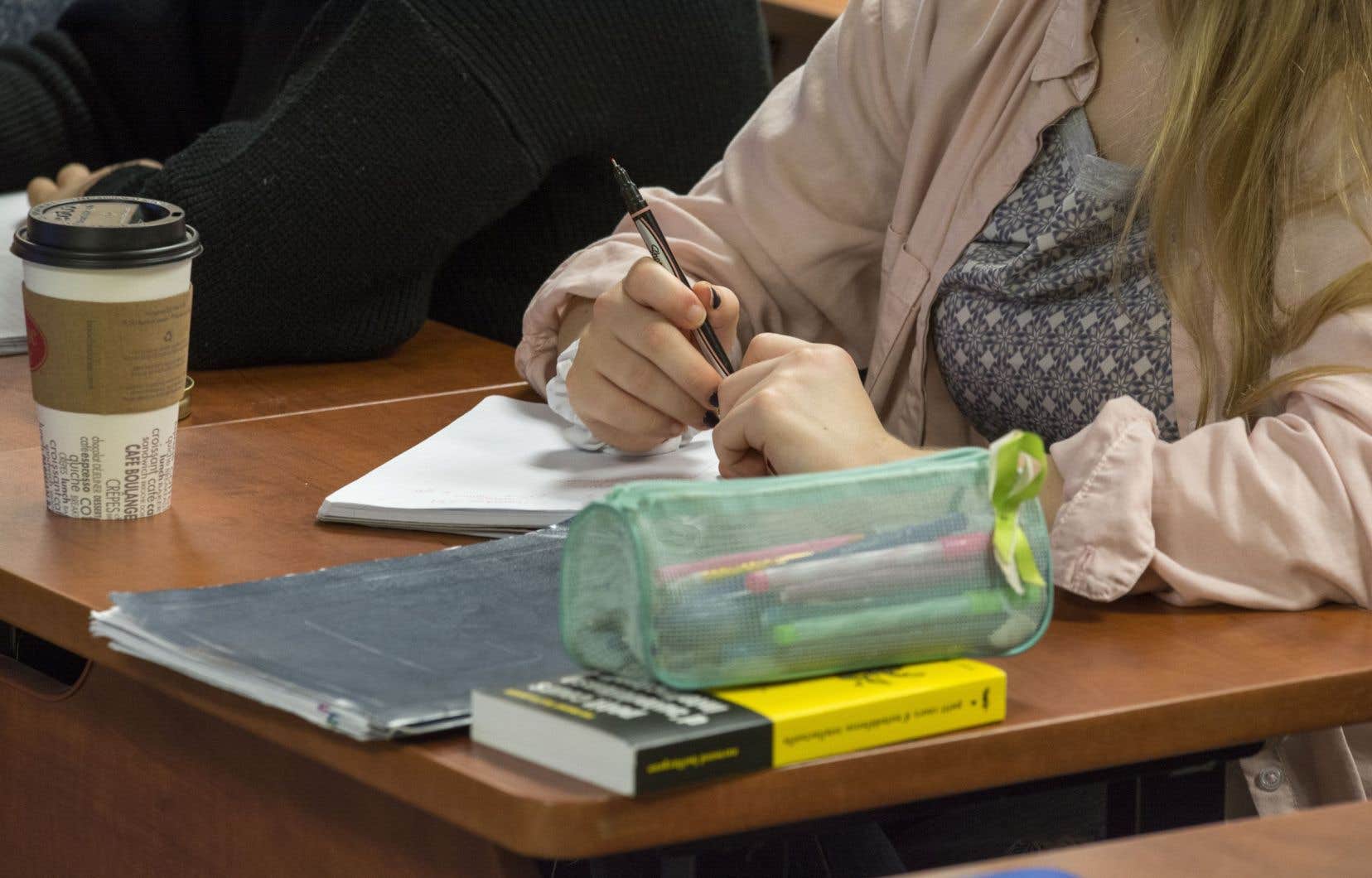Despite stimulus measures introduced by the Legault government, the number of students enrolled in programs designed to train future elementary and secondary school teachers in Quebec fell by more than 4% last year, it noted. Duty. Experts and opposition elected officials in the National Assembly call for a deeper reflection in order to make the profession more attractive.
For the current school year, about 1,100 fewer students than a year earlier applied for the university’s educational sciences program, according to data from the Institut de la tourisme du Québec (ISQ) updated last month. This represents an annual decline of 4.13% in numbers in this vast field of study, a decline reaching 6.25% for training in special education and special education, then 12.06% for teacher training in vocational education, in secondary and tertiary networks school .
Analysis of ISQ data by Duty also shows that for several university education programs, the number of students in the fall of 2023 is several percentage points lower than the average calculated since 2016. This drop is, for example, 6.42% for specialized education in elementary and secondary education, and more than 16% for teacher training programs that offer courses leading to a Diploma in Professional Studies (DEP).
“It’s a strong downward trend,” concludes Geneviève Sirois, professor of educational administration at TÉLUQ University and associate professor at the University of Quebec in Abitibi-Témiscamingue. “Currently, the problem in Quebec is that there is no plan to solve the teacher shortage,” continues the expert. However, “we have to be concerned, because our children are currently being taught by several teachers who are not legally qualified,” she stresses, and the shortage has had the effect of reducing the school network’s recruitment requirements.
The “failure” of the Perspektiva scholarship
In 2021, the Legault government announced an investment of $1.7 billion over four years to establish Perspective scholarships, aimed at students from diverse backgrounds facing labor shortages. In the education sector, however, “these grants have completely missed the mark,” says Caroline Quesnel, president of the National Federation of Quebec Teachers, who does not hesitate to describe this stimulus measure as a “”failure.”
The government also introduced short 30-credit courses that helped to limit the decline in the number of students receiving a teaching certificate each year. However, Professor Sirois increases the risk that such poorly trained teachers will not have the necessary knowledge to impart certain basic knowledge to their students, especially in special education classes.
“It is a temporary solution to a problem that is much more serious,” said Marc-Antoine Charette, a doctoral student at the University of Sherbrooke, where he is interested in the field of education. According to him, these accelerated courses risk contributing to the “devaluation of the teaching profession”, making it less attractive in the long run. “It’s a vicious cycle,” he warns.
Liberal MP for Mont-Royal–Outremont, Michelle Setlakwe, says she is particularly concerned about the drop in students wanting to teach the knowledge that leads to DEP. “On a professional level, these are professions that are often very important in the context of labor shortages. These are professions from which we cannot escape”, she emphasizes.
A call to patience
He joined Duty, the office of Education Minister Bernard Drainville urges patience. “Certainly we would prefer to see rapid improvements, but let’s be clear, it is too early to draw conclusions about the success or failure of the measures in place,” he said by email.
The latter stresses that there is no “magical solution” to Quebec’s teacher shortage and that “it takes time to reverse a trend” such as this.
There are fewer and fewer students who want to get an education, we can see that from your figures. But there are those who give up during their studies, and there are others who give up when they become teachers, before they have served five years.
The minister also says the agreements in principle reached in February between Quebec and the provincial teachers’ unions will make it possible to “make the profession attractive and increase the number of registrations” in academic programs next year. “We strongly believe that significant improvements in working conditions will enable us to achieve this,” the company says. The “campaign to promote the profession” will also see the light of day “in the coming months”, he adds.
However, the government must not be content with finding ways to get more students interested in teaching, replies Solidarity MP Ruba Ghazal, it must also find ways to better retain the public network’s troops. “There are fewer and fewer students who want to get an education, we can see that from your figures. But there are also those who give up during their studies, and there are also those who give up after becoming professors, five years ago,” she emphasizes.
There is also a whole “wave of retirement” of teachers “in progress”, which will increase the needs of the school network in the coming years, reminds Geneviève Sirois. In this context, Quebec must find a way to keep its teachers, according to the expert. Otherwise, “it’s like a bath without a stopper. We keep adding water, but the bath still drains,” she says.
To ensure better teacher retention, the government must tackle the “three-tiered education system”. Which over the years has made the “concentration of students with difficulties” in the mainstream school network more complex, Ms Ghazal believes. “Unless the government tackles three-level schools and their inequities within our education system, we will not be able to attract more teachers.

